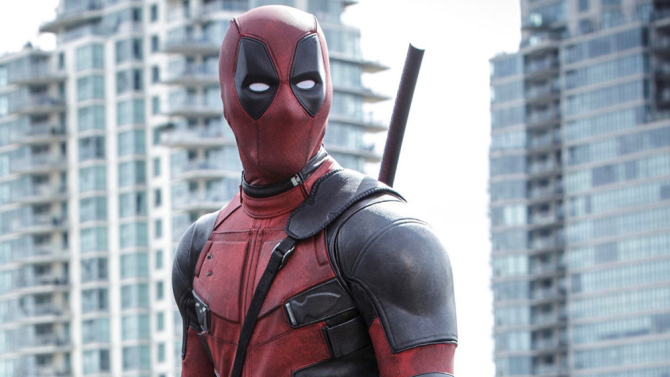If one were to read this critic’s review of Guardians of the Galaxy, you’d find a lament for an edginess that the film thinks it has, but which it ultimately forgoes for superhero formula. To sum up the experience of Deadpool, try reading that GOTG review at the top of your voice. Compared to GOTG, Deadpool has a pottier potty mouth, a sassier swagger and even less originality. But who cares? The young people like seeing sarcastic lunkheads getting seven kinds of crap kicked out them to the strains of DMX, or so it seems. For all that, even the sight of Ryan Reynolds’ titular hero (emphasis on the ‘tit’) getting pummelled couldn’t make Deadpool worth the effort for anyone outside its target market.
(Before we go any further, DMX’s ‘Party Up’ is almost twenty years old. Can we park the whole ‘retro music choices’ lark already? You may think you’re appealing to the hipster audience, filmmakers, but you’re just being naff. Enough already)
(And if you think the interjection of knowing asides like this is annoying, just wait till you see the number of times that fourth wall is bulldozed in Deadpool. ‘Cause, y’know, sarcasm is a higher form of wit, ‘n shit.)
Since fanboys balked at his mistreatment in X-Men Origins: Wolverine, a Deadpool solo project had been mooted and booted a number of times. What has arrived, then, is the Deadpool the fans must have wanted, right? Possibly, if that means a horrible walking id with zero self-consciousness and even less likeability. Likeability is not a prerequisite, but being an anti-hero implies we’re on his side through all his douchebaggery. The woes of Wade Wilson, later to become Deadpool (Reynolds) are hard to care about when even the worst of situations seem to work out for this jerk. Through the oh-so-subtle medium of flashbacks, we watch this renegade tough guy use his sarcasm and muscle mass to intimidate people, and to seduce tart-with-a-heart Vanessa (Morena Baccarin). Their initial flirtations comprise mostly of jokes about their abused childhoods. The only place these two should be heading is to a psychiatrist.
Instead, they’re off to bed, with a montage showing them bumping uglies on various occasions. If your height of wit or commentary sees your central pair swapping roles on International Women’s Day (Get a good mental image there. Yeah, that’s it, there you go.), it’s safe to say you’re not out to please all and any potential audiences. Deadpool wears its R-rating with pride, blending severed body parts, jokes about paedophilia and several doses of smugness into a sickly sludge. All of the ‘naughty’ stuff (That is to say, the silly sex-related stuff that might get undemanding 15-year-olds snickering) might have boasted a little more bite if the film’s anarchic sensibilities had managed to hide its generic structure a little better. Though boasting a smaller budget than other Marvel superhero outings (A flaw the film points out, but that doesn’t excuse the cheapness of its sets or gags), it still cleaves to the origin story template, complete with a weak explanation of the hero’s name, references a-go-go to other heroes in its shared universe (Surely we all inhabit the same universe? Can’t we all just get along?!) and a CG-heavy climax. Throw in a couple of lesser X-Men for support and a gratuitous Stan Lee cameo, and you’ve got yourself a Marvel movie, but now with 100% extra sass mouth. That sass completely fails to cover up the familiar flavour.
As both lead and producer, Reynolds is clearly invested in this character, and he certainly sells the portrait of Deadpool as ego personified. The problem is the rest of the film loves Deadpool as much as he loves himself. When Wade receives a cancer diagnosis, Vanessa strives much harder to find a conventional cure than he does. He’s then offered a miraculous, but naturally-shady cure by Ed Skrein’s villain, Ajax. The plan goes awry (natch), and Wade ends up with the accelerated healing powers that make him Deadpool, but his initial concern is his scarred and burnt appearance. No-one told this guy that not every superhero can look like Hugh Jackman, who is constantly name-checked in a blurring of realities and timelines that confuses more than it amuses. Feature debut director Tim Miller brings little visual pizazz to proceedings (The bullet time-aping opening credits, in which Miller’s listed as an ‘overpaid tool’, may be the high point), so it’s up to the infantile script and Reynolds’ laidback charm to pick up the slack. It’s the classic Superman problem: how can one feel invested in something that cannot be killed? Superman had some weaknesses, but Deadpool’s only kryptonite is his own inflated sense of self. Not knowing how to do anything else besides placate its protagonist, Deadpool buries itself in blood and one-liners.

